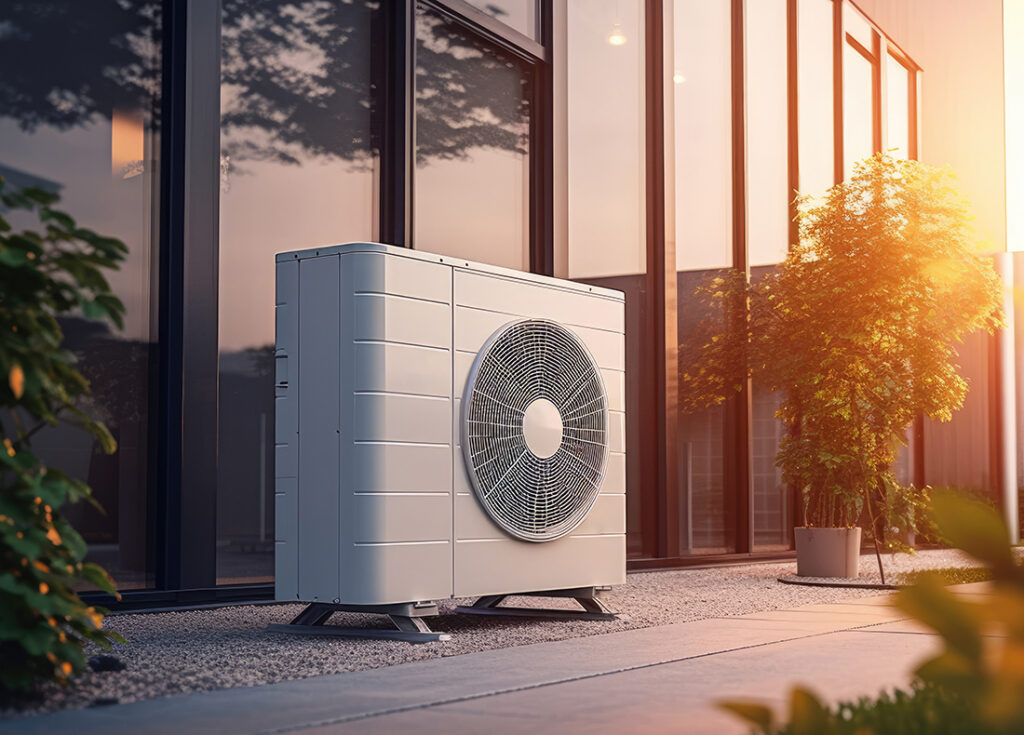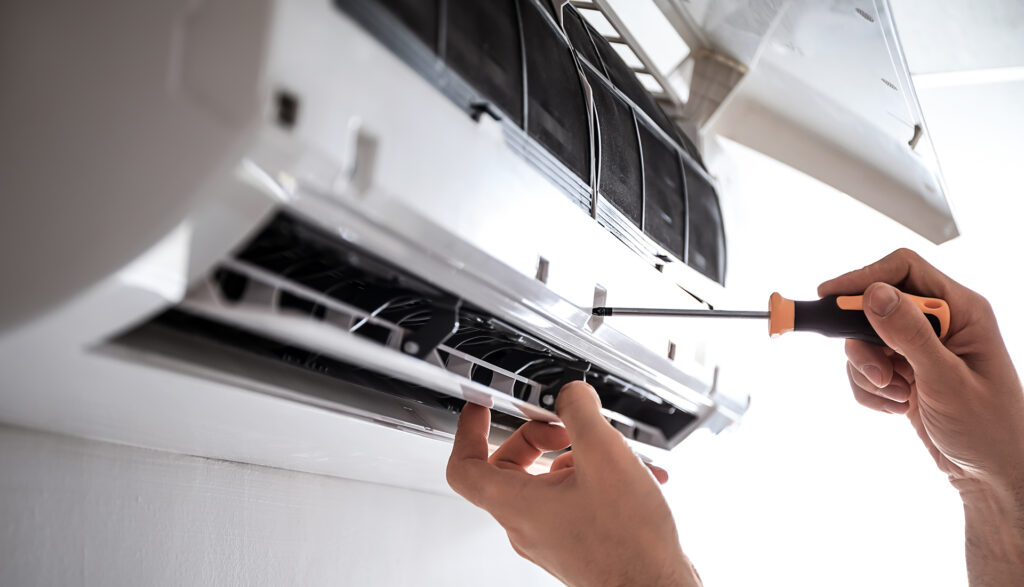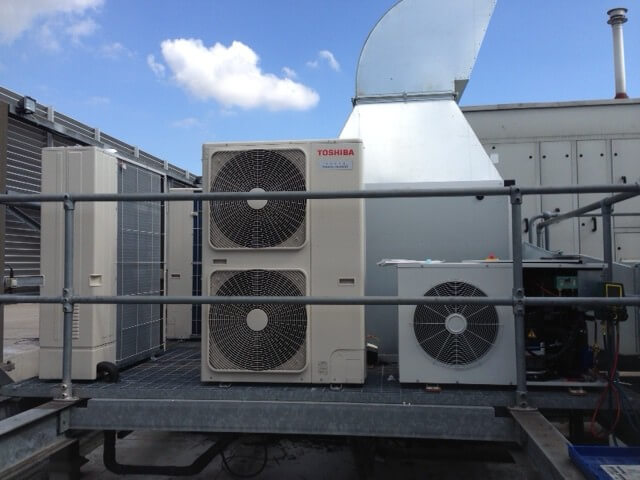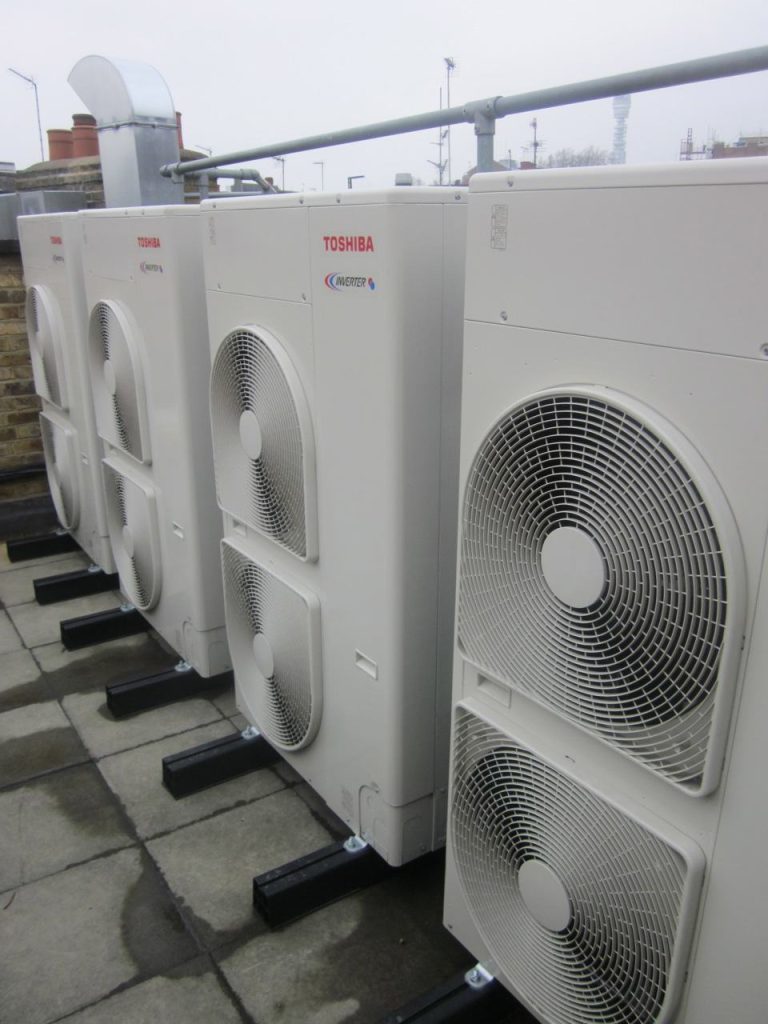Air Conditioning and Your Health
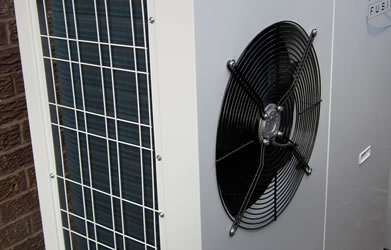
Estimated reading time 11 minutes
In previous articles we’ve written about how air conditioning can control temperature, humidity and clean the air you breathe but what effect does it have on your health? In this article we look at how air conditioning can impact your health.
Maintenance of your Air Conditioning System is Vital
In the first instance it’s important to note that regular maintenance (planned preventative maintenance) of your air conditioning system is a prerequisite to ensuring that you get the full benefits from your air conditioning system.
If your AC is not maintained it can result in many issues within your air conditioning system including increased energy consumption, unstable heating and cooling or complete failure to heat or cool, as well as clogged filters which will then stop filtering the air properly. Dust, dirt, allergens like pollen etc. that should be filtered out will be recirculated back into the air that you will be breathing. It’s therefore vitally important that your air conditioning system is regularly and professionally maintained to ensure it is working correctly and efficiently to keep the air you are breathing, clean.
How Does Air Conditioning Improve Health?
Your air conditioning works in three ways to allow you to maintain the indoor temperature, keeping the inside warm when its cold outside and cool when its warm outside; it also controls the indoor humidity and purifies the air that is circulated within your building be it a workspace or your home. Controlling temperature, humidity and air quality control all come with health benefits. If temperature, humidity and air purity are not controlled there is a deterimental impact to health.
Health Issues With Increasing Temperature
Changes in temperature, especially those which are unusual e.g. heatwaves can have a direct effect on health as they compromise the body’s ability to regulate its temperature. This loss of temperature control can result in heatstroke, heat exhaustion and hyperthermia (abnormally high body temperature) and cause health conditions such as respiratory disease, heart disease, cerebrovascular disease (affecting the blood vessels in the brain and cerebral circulation), and diabetes to worsen. In some cases, resulting in death.
Several research papers have documented the effects of the hotter summers and heat waves that are being experienced across the UK.
A paper published in Biomedical Central “The health effects of hotter summers and heat waves in the population of the United Kingdom: a review of the evidence” shows that “all UK studies demonstrate an increase in heat-related mortality occurring at temperatures above threshold values, with respiratory deaths being more sensitive to heat than deaths from cardiovascular disease (although the burden from cardiovascular deaths is greater in absolute terms).” They found that the main populations who were the most vulnerable to heat, within the UK, were the older generation, those with certain simultaneous diseases and those living in Greater London and the South East.
In 2021 the Met Office released advice and a “hot weather” warning for the first time in its history explaining that “hot weather places a strain on the heart and lungs. For that reason, most of the serious illness and deaths caused by heat are respiratory and cardiovascular. Older people, those with pre-existing health conditions and young children are particularly at risk. Overexposure to the sun is equally dangerous, with effects ranging from mild sunburn to skin cancer. It doesn’t have to be hot for the UV index to be high.”
The Science Media Centre published an “expert reaction to UK hot weather and an Extreme Heat Warning issued by the Met Office” in. One expert Dr Vikki Thompson, Senior Research Associate, School of Geographical Sciences and Cabot Institute for the Environment, University of Bristol, explains “Heat waves can have devasting impacts on human health. In the summer of 2020 heatwaves led to an estimated total excess mortality of 2,556. Of these excess deaths 2,244 were in the 65+ years group. Hot weather causes deaths due to cardio and respiratory problems caused by increased strain on the heart and lungs.”
Given the level of concern around continued rising temperatures the UK government’s Heatwave plan for England Protecting health and reducing harm from severe heat and heatwaves, first published in 2004, was updated and provides “a guide to protect the population from heat-related harm to health. The aims of the plan are to prepare, alert and prevent the major avoidable effects on health during periods of severe heat in England.”
Health Issues With High and Low Humidity
Humidity is a measure of the amount of water vapour in the air. When humidity levels are high our bodies thermal comfort is affected making it more difficult for us to regulate our body temperature as it becomes harder to remove heat through the process of perspiration. Without the ability to regulate body temperature our core temperature increases leading to dangerous internal temperature levels and overheating. This in turn can lead to heat stress and the risk of strokes, hearty attacks and problems with breathing.
High humidity levels can also lead to problems with condensation within buildings which makes them more hospitable to mildew and mould which can also have negative health effects. Mould growth can produce spores which act as allergens and irritants and which can cause several allergic reactions including sneezing, a runny nose, throat irritation, coughing or wheezing, eye irritation and skin rash. Moulds can also trigger mild and severe asthma attacks.
Medical news Today looked at “How does humidity affect asthma?” and found that people with asthma find that humid weather makes their symptoms worse. They evidenced research carried out by American Journal of Respiratory and Critical Care Medicine which found that “airway resistance” (a measure of how easy it is to breathe) was higher in people with asthma after they experienced humid air (49°C and 75–80% humidity) for 4 minutes. The results showed that people with asthma had a much higher (112%) increase in airway resistance when compared to a 22% increase in airway resistance in people without asthma.
Low humidity levels can also have an impact on our bodies. According to the Health and Safety Executive (HSE) “levels of relative humidity in the range of 40 to 70% are recommended for the workplace environment. At higher temperatures, the relative humidity should be at the lower end of this range.”
Low relative humidity can cause dehydration. It can also cause skin, lips, eyes and respiratory tract problems as it causes mucous membranes to dry out resulting in sore, scratchy dry throats and dry skin. As the nasal passages dry out this also leaves you more susceptible to other illnesses as the noses’ ability to trap viruses decreases.
Health Issues Where Air Purity Is Compromised
If the air we breathe is polluted it can affect our health and lead to serious health conditions.
According to the World Health Organisation (WHO) indoor exposure to air pollutants causes very significant damage to health globally.
The UK government have stated that “poor air quality is the largest environmental risk to public health in the UK, as long-term exposure to air pollution can cause chronic conditions such as cardiovascular and respiratory diseases as well as lung cancer, leading to reduced life expectancy.”
The Royal College of Physicians published a report called “Every breath we take: the lifelong impact of air pollution” which highlighted indoor air pollution. It outlined the number of different ways our indoor air can become polluted and how this can impact our health.
The UK Research and Innovation (UKRI) which is a non-departmental public body sponsored by the Department for Business, Energy and Industrial Strategy (BEIS) explored “how air pollution in indoor spaces affects human health” found that “in the UK, poor air quality is a severe environmental risk to public health, with air pollution estimated to be responsible for 40,000 early deaths a year.”
Asthma and Lung UK explain that “Poor indoor air quality has been linked to lung diseases like asthma, chronic obstructive pulmonary disease (COPD) and lung cancer. It has also been linked to increased risk of heart disease and stroke.“
How Can Air Conditioning Help?
Air conditioning can have a major impact in our buildings both commercial and at home through maintaining the correct temperature, humidity and air purity. We know that keeping people warm in cold weather and cool in hot weather as well as maintaining the relative humidity can prevent serious health conditions.
The UK HSE looked at the risks of heat stress and have documented a number of ways in which to minimise heat issues including preventing dehydration, changing workplace processes and using fans or air conditioning.
The UK government’s Beat the heat: staying safe in hot weather suggests a variety of measures to keep cool in hot weather including “get them to lie down in a cool place – such as a room with air conditioning or somewhere in the shade.”
It’s important to note that low temperatures as well as high temperatures can lead to ill health. A UCL study into the link between indoor temperatures and high blood pressure found that turning up the thermostat may help manage hypertension.
Maintaining your buildings relative humidity levels at acceptable levels can also have a positive effect on health. By ensuring humidity is controlled you also help to control and reduce allergy triggers like mould and mildew and prevent itchy watery eyes, respiratory issues as well as reducing the chance of catching other illnesses and infections. There is also research and evidence to show that air conditioning can prevent indoor pollution from triggering respiratory conditions.
Clifford Bassett, MD, founder and medical director of Allergy and Asthma Care of New York and author of The New Allergy Solution states: “If you’re someone who has indoor allergies, having A/C could actually help filter out some of the pollen, mould, and pollution that are in the air, which could make your symptoms more tolerable”.
Dr. Mark Aronica, an allergist-immunologist at the Cleveland Clinic says: “For patients with allergies and other underlying respiratory diseases such as COPD/Emphysema, staying indoors with the air conditioning on and the windows closed, reduces exposure to outside pollens and pollutants.”
The Centre for Disease Control (CDC) states air-conditioning is the strongest protective factor against heat-related illness. Exposure to air conditioning for even a few hours a day will reduce the risk for heat-related illness.
This is further backed up by a study by Yale researchers called Adverse Health Effects of Particulate Air Pollution which shows air conditioning can lower the risk of hospitalisation and deaths related to cardiovascular issues.
William Fisk, leader of Lawrence Berkeley National Laboratory’s Indoor Environment Group also explains: “AC can be expected to reduce the risk of heat stroke and heat-related death during heat waves, which are becoming more common with climate change. AC also enables windows to be maintained closed and AC systems usually contain filters that remove particles from the circulated air. With AC and closed windows, indoor concentrations of outdoor air pollutants such as particles, ozone and allergens are decreased.”
We also know that the spread of viruses like Covid-19 can be prevented through good ventilation. Ventilation through air conditioning can ensure fresh air is circulated and stale air is removed and expelled outside. This results in reducing and removing virus particles from indoors decreasing the chance of catching and spreading respiratory infections
Synecore
Synecore is a commercial air conditoning and home air conditioning installer in Kent, London, Surrey, Sussex, Essex. We can design and install air conditioning throughout your building or home. We provide installation of high-quality products from leading manufacturers. Our customers also benefit from our 7 year warranty when they sign up to our cost-effective air conditioning maintenance plan that offers complete peace of mind.
Planned preventative maintenance will ensure your air conditioning is working efficiently and effectively to ensure your buildings temperature, humidity and air purity are as they should be to maintain your health. It will address any issues before they become major problems saving you time and money in the long term.
If you would like to learn more about your air conditioning options, contact Synecore on 01795 509 509. Our team will book an appointment for one of our engineers to visit your home and discuss your options.
